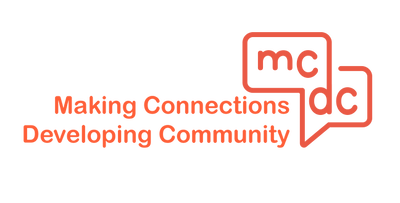Newcomers - General Information
-
Social and Community Services - 211
211 is an information and referral service that refers citizens towards community organisations, public and parapublic services and programs near them. It is a free and confidential service.
Call 211 on weekdays 8am-7pm, and weekends 8am-3.30pm.
Find community and social resources online on their website here.
-
City of Lévis - 311
Consult the City of Lévis website here. Their website is only in French. If you need any help contacting the City of Lévis, we will be happy to assist you.
311 Lévis
The 311 Lévis team is there to answer your questions about a service offered by the City, to make a comment, to request an intervention or to report a problem. Phone 311 from Monday to Friday from 8am to 5pm.
-
Leisure and Recreation
-
Education
In Quebec, school is mandatory for all children ages 6 to 16.
- Kindergarten - ages 4 or 5 (known as preschool, not mandatory)
- Elementary - ages 6 to 12
- High School - ages 12-18
- Cégep - ages 18 and up
- University - ages 18 and up
Elementary and secondary (high school) education is available free of charge. Post secondary education in Québec is subsidised for Québec residents.
The Québec public school system is language-based (English or French).
The school year starts in late August or early September and ends no later than June 24, Quebec's national holiday.
See the site for the Ministère de l'Éducation et de l'Enseignement supérieur here.
Central Québec School Board (CQSB)
The English-language school board in the region is the Central Québec School Board. See their website here. 418-688-8730.
The English schools in the Chaudière-Appalaches region are:
- St Patrick's Elementary School and AS Johnson Memorial High School in Thetford Mines
- St Vincent Elementary School in Lévis (from Fall 2023)
Eligibility for English school
Because French is the official language of Quebec, the French Language Charter (Bill 101) states that all children must be educated in French until they finish high school, whether in a public school or a subsidised private school. There are no restrictions on who can attend an English adult education centre, CEGEP or university in Quebec or private English schools that do not get government funding.
For information about who can attend an English school in Quebec, see here.
Application process for English school
Parents or legal guardians who want their children to go to an English school must apply for permission. For information about the application process, see here.
For public schools, parents must apply through the English school board in their area. (In Chaudière-Appalaches, it is the CQSB.)
For private schools, parents must apply directly to the school.
Vacation
- There are usually two weeks off for the holidays (late December to early January) and a week off for spring break in early March.
- From late June to late August, schools are closed for the summer break. It is common for children to participate in day camps during the summer break. Registration for camps vary but is generally from mid-March to late May.
- Days are allocated into the school calendar for snow days during the winter which are made up for later in the year.
-
Health Care
The Régie de l'Assurance Maladie du Québec (RAMQ) is the government agency that manages public health insurance in Québec.
As soon as you arrive in Québec, you can register for the Health Insurance Plan (RAMQ) if you meet the eligibility conditions and if you are in one of the following situations: you are settling in Québec or coming to study or work here temporarily.
See our section on Health Services for further information about health care, including your right to services in English, applying for your RAMQ card, how to get a family doctor and how to see a doctor at a walk-in clinic.
-
House Hunting/Renting and Buying
Leases
In Québec, one-year leases are the norm, usually from July 1 to June 30. July 1 is considered moving day in Quebec. If you are moving on July 1, make sure book a moving truck as soon as you can to ensure availabilty.
If you want a shorter lease term, you will have to discuss this possibility with your landlord, as it is not as common as a one year lease. Make sure that the length of your lease is clearly written on the lease agreement. It is also possible to have a lease for longer than 12 months, which will also have to be discussed with your landlord and detailed in your lease agreement.
You must give your landlord three to six months' notice before the end of your lease, in writing, if you want to move out.
Similarly, the landlord must tell you of any changes to your lease, such as a rent increase, three to six months before it ends. You then have one month to reply. If you do not, your lease will automatically be renewed for another year, with the increases applied. You can either accept the changes and the lease is valid for another year, or you can refuse the changes and try to renegotiate. The Régie de Logement can help decide what is fair when you renegotiate if you and your landlord cannot agree.
Costs
Before signing a lease, clearly set the terms with the landlord, such as the monthly rent, furnishings and appliances, and utilities. Always inquire about the total cost of the accommodation as well as the services included. Be sure to ask if the accommodation is lit (with electricity) and heated. If it is not, ask about the average additional costs per month, especially during the winter months.
Furnished or unfurnished?
An unfurnished apartment will generally be an empty apartment, without a refrigerator or oven. A semi-furnished unit will often have a refrigerator and an oven, but will not necessarily contain any furniture. The term 'furnished' can mean many things in Quebec. It is therefore recommended to always ask about the appliances and furniture included.
How many rooms?
Quebec housing ads often refer to the number of rooms in the apartment. Most apartments include a “½', which refers to the bathroom. For example, a 3 and ½ is a 3 room unit (a kitchen, a bedroom, a living room and a bathroom) and a 4 and ½ is an apartment with 4 rooms, including 2 bedrooms.
Where to find places to rent?
In Quebec, it is popular to search for rental housing on Kijiji or Facebook Marketplace. It is also possible to contact landlords directly, whose numbers are posted on 'Apartment for rent' signs in front of units.
The Régie de Logement
For all questions about tenant/landlord relations, call the Régie du logement at 1-800-683-2245 or visit www.rdl.gouv.qc.ca/en/.
Find information about the rights and responsibilities of property owners and renters through the Éducaloi website here.
Becoming a Homeowner
If you are looking to buy a home in Quebec, see the guide from Educaloi about Becoming a Homeowner here. It contains information about deciding to buy, getting advice, making an offer, getting a loan, planning, signing and living in your new home.
Notaries play a central role when it comes to the purchase of a house, condo or income property. In fact, a notary must be involved when you have to sign a mortgage. MCDC/SSEN have a list of English-speaking notaries in the region.
-
Employment
Social Insurance Number (SIN)
If you want to work in Canada, you need a social insurance number. There is no fee to apply for a SIN. You can do this in person at any Service Canada Office (you will generally receive your SIN the same day) or you can apply online (you should receive your SIN within 20 days).
You will need to provide supporting documents:
- A valid primary identity document that proves the applicant's identity and legal status in Canada
- A valid secondary identity document that confirms identity (passport, Canadian provincial ID card or driver's license)
- Proof of address
If you apply in person, you will need to take original copies of these documents with you. If you apply online, you may submit digital copies.
To find a Service Canada Office, click here.
Job search services
If you are looking for employment in the Chaudière Appalaches region, try looking at our Employment page to see our Job Bank and find out about organisations in the area that offer employability services.
Unemployment
Employment Insurance (EI) provides regular benefits to individuals who lose their jobs through no fault of their own (for example, due to shortage of work, or seasonal or mass lay-offs) and are available for and able to work, but can't find a job.
Find out about EI benefits and leave information online here.
The Employment Insurance Telephone Information Service at 1-800-206-7218 is an automated telephone service that provides general and more specific information on the EI program. It is available 24 hours a day, 7 days a week. To get more information or make changes to your claim, you can speak with an EI representative 8.30am to 4.30pm, Monday to Friday.
-
Family
-
Government
-
Immigration
Accompagnement Quebec
Accompagnement Québec is a free and personalized service offered to immigrants. You can access this service from within Quebec and abroad, before you arrive, and it is designed to facilitate your integration and participation in French into Québec society. Their integration assistance agents from MIFI will help you prepare an individualized action plan looking at settlement, community life, francisation, recognising your competencies, employment and immigration procedures. These services are offered freely and you register through your Arrima account.
To find out more about this service, click here.
-
Transportation
-
Tax
-
Banking
There are several choices of banks in Quebec to open an account. Here is a brief list of banks: Desjardins, RBC, HSBC, TD, Banque Nationale, Banque Scotia, CIBC, BMO, Tangerine.
To open a bank account, some banks allow you to do this online, or you may need to call to make an appointment with an advisor.
You may need to provide supporting documents such as: your national insurance number, a valid ID (passport, RAMQ card, driver's licence); if you are from outside Canada, you may be required to also provide documentation showing your immigration status in Quebec.
-
Grocery shopping
-
Telephone and Internet
-
Holidays and Important Dates in Quebec and Canada
Date
Canada
Québec
1st Monday in September
Labour Day
La fête du Travail
2nd Monday in October
Thanksgiving
L'Action de grâces
31 October
Halloween
Halloween (non férié)
11 November
Remembrance Day
Le Jour du Souvenir (non férié)
24 December
Christmas Eve
La veille de Noël (non férié)
25 December
Christmas
Noël
31 December
New Year's Eve
La veille du Jour de l'an (non férié)
1 January
New Year's Day
Le Jour de l'an
March/ Avril
Easter
Pâques (1 jour férié)
2nd Sunday in May
Mother's Day
La fête des Mères (non férié)
3rd Monday in May
La fête des Patriotes - Le jour de la reine Victoria
3rd Sunday in June
Father's Day
La fête des Pères (non férié)
24 June
La (fête de) Saint-Jean-Baptiste
1 July
Canada Day
La fête du Canada
Inspired by Voice of English-speaking Quebec.

